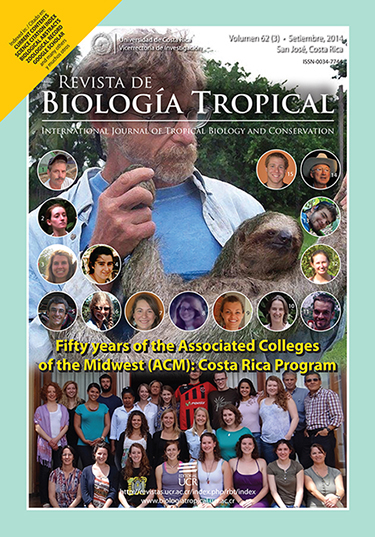Resumen
In Costa Rica, cervical cancer is the second most common female cancer, despite accessibility of screening through the universal health care system. There is little understanding of knowledge levels of the adolescent population on cervical cancer, although this population is the most exposed to risk factors. This study sought to learn about male and female adolescent knowledge of preventative methods, infection acquisition, clinical manifestations and medical services. A total of 533 students from grades 7-12 from five public high schools in the rural San Carlos region participated in the study from March through April 2012. Students were found to lack knowledge, as only 30.8% of students stated that they knew what cervical cancer is. Additionally, a connection was lacking between cervical cancer concepts, as for example 75.2% of students had heard of Human Papiloma Virus, but only 33.9% of those students knew that HPV is related to cervical cancer. Age had a positive relationship with knowledge of main concepts (p≤0.001). More women than men had heard of cervical cancer and the Papanicolaou (p=0.025, p≤0.0001), but otherwise no significant difference in mean response between genders was found. Students were found to have a limited awareness of the educational cervical cancer campaign (7.7% of the student population) and the ability to go alone to the doctor to receive medical attention (30.6% of students). Additionally, the public education system does not require cervical cancer to be included in the present curriculum. Hence, as students lack education on prevention and risk factors, the majority of prevention responsibility falls only on the universal health care system to regularly perform Papanicolaou exams to detect pre-cancerous or cancerous changes. The findings indicated the importance of including cervical cancer in the sexual education curriculum of the public education system in Costa Rica to educate the at-risk population of preventative methods, infection development, clinical manifestations and medical services in order to lower the presence of cervical cancer.
Lauren M. Carlson1 & Sam Gonzalez2
1St. Olaf College, Northfield, MN, USA; carlsonl@stolaf.edu
2Macalester College, St. Paul MN, USA; scarlos1790@gmail.com
##plugins.facebook.comentarios##

Esta obra está bajo una licencia internacional Creative Commons Atribución 4.0.
Derechos de autor 2014 Revista de Biología Tropical


